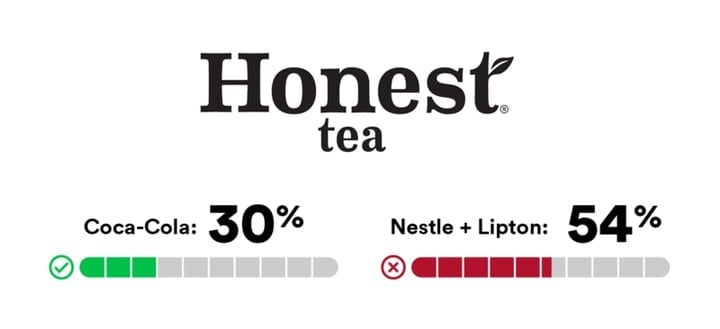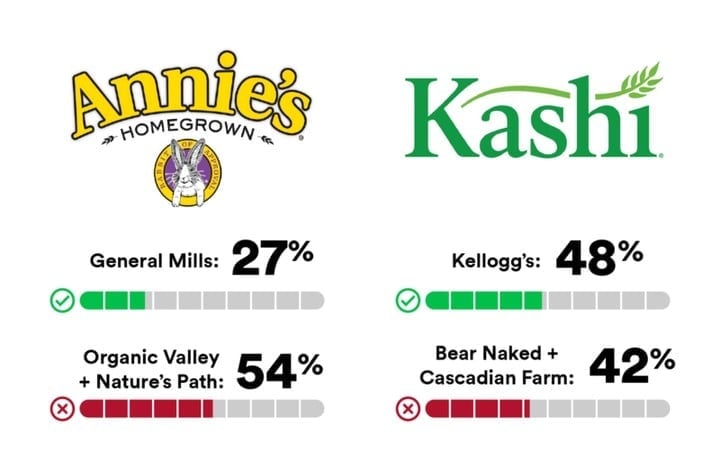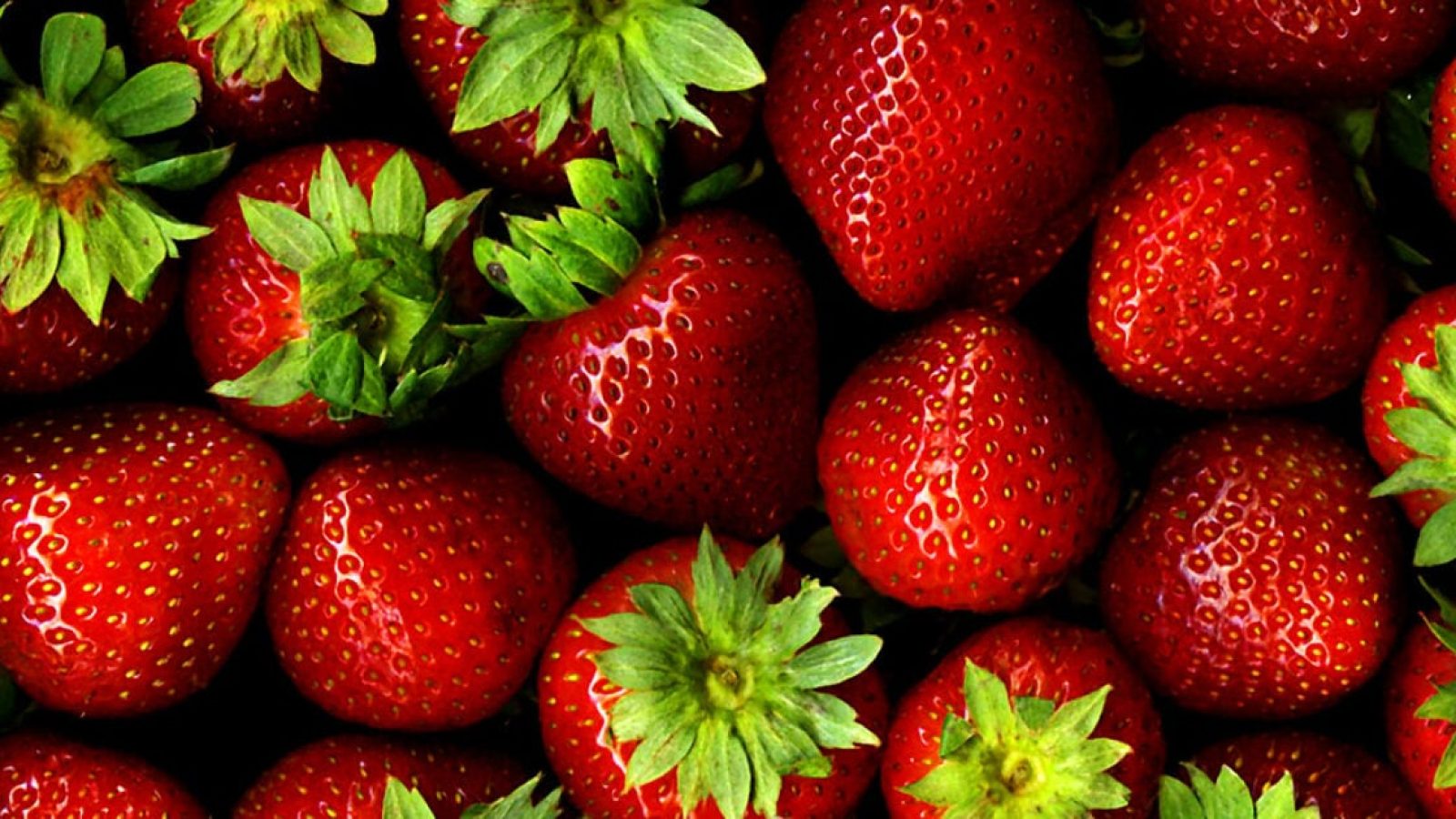The Environmental Working Group (EWG) published its ‘2024 Shopper’s Guide to Pesticides in Produce.’
EWG listed a ‘Dirty Dozen’ fruits and vegetables that it claims are “packed with fungicides that can disrupt human hormones.”
“Across fruits and vegetables from EWG’s Dirty Dozen – the Shopper’s Guide component that identifies the 12 non-organic, or conventional, fresh produce with the most pesticides – four of the five most frequently detected chemicals are fungicides: fludioxonil, pyraclostrobin, boscalid and pyrimethanil,” EWG wrote in a press release.
“Two of these, fludioxonil and pyrimethanil, also show up in the highest average concentrations of any pesticides found on the Dirty Dozen. Both fungicides may be endocrine disruptors with the potential to harm the male reproductive system,” it continued.
“Emerging evidence suggests many widely used fungicides may disrupt human hormone systems,” said EWG Senior Toxicologist Alexis Temkin, Ph.D.
“But more studies are needed to better understand the risks they – and all pesticides – pose to humans, particularly children,” Temkin added.
The ‘Dirty Dozen’ includes:
- Strawberries
- Spinach
- Kale, Collard & Mustard Greens
- Grapes
- Peaches
- Pears
- Nectarines
- Apples
- Bell & Hot Peppers
- Cherries
- Blueberries
- Green Beans
95% of These Fruits + Vegetables Tested Positive for Pesticides
“There’s data to suggest that these fungicides can disrupt the hormone function in our body…” — Alexa Friedman @ewg
— Children’s Health Defense (@ChildrensHD) March 25, 2024
From EWG:
Fungicides are applied on fruits and vegetables to prevent or kill fungal diseases like powdery mildew. They’re often applied after harvest to keep produce mold-free on its way to market. That’s likely why fungicide concentrations were so high on some samples – higher than other pesticides applied earlier in the growing season.
This year, EWG determined that 75 percent of all conventional fresh produce sampled had residues of potentially harmful pesticides. But for items on the Dirty Dozen, a whopping 95 percent of samples contained pesticides.
“Everyone – adults and kids – should eat more fruits and vegetables, whether organic or not,” said EWG Senior Scientist Alexa Friedman, Ph.D. “But consumers concerned about pesticide exposure can use the suite of materials in EWG’s Shopper’s Guide to Pesticides in Produce to make the best choices for them and their families.”
EWG’s 2024 Shopper’s Guide to Pesticides in Produce analyzes data from tests conducted by the Department of Agriculture and Food and Drug Administration on 47,510 samples of 46 fruits and vegetables.
The USDA peels or scrubs and washes produce samples before they’re tested, whereas the FDA removes only dirt first. Even after these steps, the agencies’ tests still found traces of 254 pesticides in all fruits and vegetables analyzed – and 209 of these were on Dirty Dozen produce.
Pesticides in Produce: 2024’s ‘Dirty Dozen’ and ‘Clean Fifteen’ Fruits and Vegetables Revealed in New Report
Kale, collard, and mustard greens had the highest number of pesticides, with 103 individual chemicals.https://t.co/FQtbORvzzt
— The Epoch Times (@EpochTimes) March 22, 2024
EWG also produced a ‘Clean Fifteen’ list.
“These 15 items had the lowest amounts of pesticide residues, according to EWG’s analysis of the most recent USDA data,” EWG writes.
The ‘Clean Fifteen’ includes:
- Carrots
- Sweet Potatoes
- Mangoes
- Mushrooms
- Watermelon
- Cabbage
- Kiwi
- Honeydew Melon
- Asparagus
- Sweet Peas (frozen)
- Papaya
- Onions
- Pineapple
- Sweet Corn
- Avocados
“A small amount of sweet corn, papaya and summer squash sold in the United States is produced from genetically modified seeds. Buy organic varieties of these crops if you want to avoid genetically modified produce,” EWG noted.
Strawberries, leafy greens, grapes and green beans are just a few items on the EWG’s “Dirty Dozen” list for 2024. https://t.co/eVTiHmdhL4
— Salon (@Salon) March 22, 2024
From The Defender:
Beyond fungicides, testing also turned up the neonicotinoids acetamiprid and imidacloprid, which harm bees and other pollinators and have been associated with damage to the development of children’s nervous systems.
Testing also revealed the pyrethroid insecticides cypermethrin and bifenthrin. While there are fewer studies on these pesticides, existing research suggests they may also harm children’s brains.
More than 1 in 10 pear samples tested positive for diphenylamine, which is currently banned in the European Union over cancer concerns.
Most of the pesticides detected in the Dirty Dozen are legal, but one exception is acephate, an organophosphate insecticide that is essentially prohibited for use on green beans but is still found on them.
One sample tested positive for levels 500 times the U.S. Environmental Protection Agency’s (EPA) legal limit.
ADVERTISEMENTEWG found that nearly 75% of non-organic fruits and vegetables tested were contaminated with pesticides.
RELATED:
SURVEY SAYS: Do You Know Who Owns Annie’s Homegrown and Kashi?
Noah here…
Do you know who owns the organic and healthy sounding Annie’s Homegrown and Kashi brands?
I’ll tell you the answer in one minute.
But first a question…..have you heard of the Consumer Goods Cartel?
I didn’t come up with that name, but I saw it and I thought it was very appropriate.
Check out this pie below….
See all the different brands?
Think you’re buying from all these different companies when you shop at the store?
Supporting the little guy?
You’re not.
You’re really buying from the same 11 companies aisle after aisle:

Even the brands you think are independent have mostly all sold out to the “Big 11″…
Do you drink Honest Tea?
Think it’s owned by a tea company or surely an organic, wholesome, independent company?
It’s not.
It’s owned by Coca-Cola, but only 30% of people successfully identified that in a recent survey:

How about Annie’s Homegrown?
Think you’re feeding your kids the healthier Mac-N-Cheese alternative?
It’s all owned by General Mills.
And how about that Earthy, granola Kashi?
Must be a “granola” startup right?
Nah, it’s owned by Kellogg’s:

And all 11 of these companies push DEI big time…
You know what that is, right?
Diversity, Equity and Inclusion.
Except…they don’t seem to have much tolerance for including White Christians by my estimation. Anything else goes, but not White Christians.
Oh and their products aren’t always all that safe either.
Have you seen this?
Johnson & Johnson Mulls Historic THIRD Bankruptcy Over Baby Powder Cancer Claims [DETAILS]
So what do you do?
It's time for a SOLUTION!
A real solution...
A solution that will last.
Because changing what store you shop at isn't going to do it -- they all have the same products.
Wouldn't it be nice if there was an American-made, family-owned, American Manufacturer that controlled the entire supply chain?
There is.
And you've probably never heard of them because 1⃣ they don't do ANY advertising and 2⃣ it's invite-only to join them.
The good news?
I've got the invites!
That's right, I have partnered with an American made, family and patriot owned manufacturer that supplies us with our everyday essentials and actually cares about its customers and freedom in this country.
If you go to their 300,000 s.f. home office in Idaho (I did a few months ago) the first thing you'll see when you enter their lobby is life-size statues of George Washington and Abraham Lincoln.
Why?
Because this company LOVES America!
Imagine that!
If you want an invite, you can get one here for FREE, direct from me: https://SwitchWithNoah.com
- Noah
This is a Guest Post from our friends over at 100 Percent Fed Up.





Join the conversation!
Please share your thoughts about this article below. We value your opinions, and would love to see you add to the discussion!